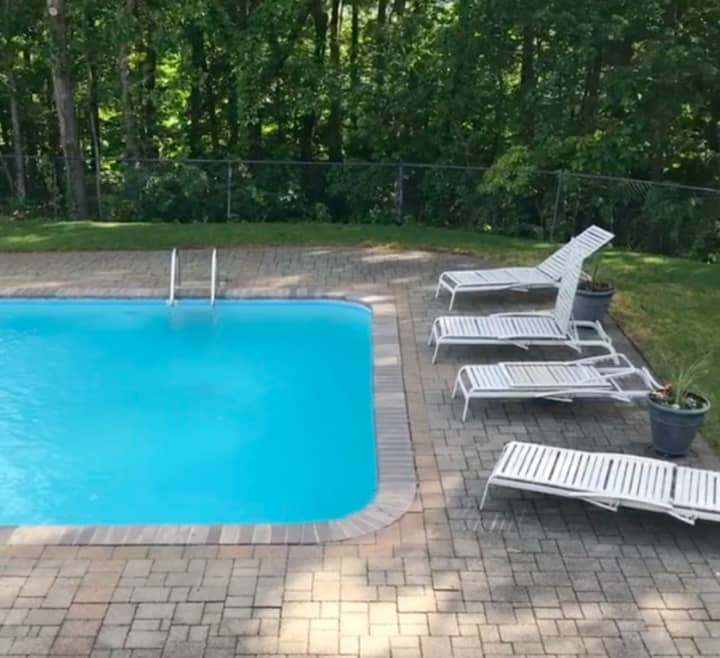What was expected to be a busy summer for pool owners and goers has turned cloudy - similar to the pool water - due to the shortage, which is delaying their ability to get things set up for the summer.
Chlorine is used to prevent and kill algae in pools, while also protecting swimmers from waterborne illnesses.
In response to the shortage, some pool professionals have been stockpiling chlorine tablets behind the scenes as they look to get through what is reportedly the worst shortage the country has ever seen.
According to reports, the shortage is widespread and is expected to get worse before it gets better, driving up prices in the process as the weather begins to heat up.
The shortage was caused by a combination of factors, including the demand from last year, when Americans were largely confined to their homes, as well as a chemical plant fire that destroyed some manufacturers’ ability to produce the product.
Prices of chlorine tablets have been on the rise, up nearly 100 percent in the past year at some pool stores.
Accord to pool experts, with the chlorine shortage expected to continue getting worse, these tips can be used to enjoy the summer safely:
- Make sure the water looks clean and clear before getting in;
- Contact your local pool professional to discuss chlorine alternatives, from salt water and UV systems to mineral packs;
- Stay on top of pool maintenance, scooping out debris and regularly vacuuming;
- Use algaecide, as algae create a chlorine demand;
- No street clothes in the pool, which carry contaminants that increase chlorine demand;
- Avoid detergent and only rinse swimsuits;
- Cover the pool when not using it;
- Shower before swimming and don’t let pets in the pool.
Click here to follow Daily Voice Pound Ridge and receive free news updates.


